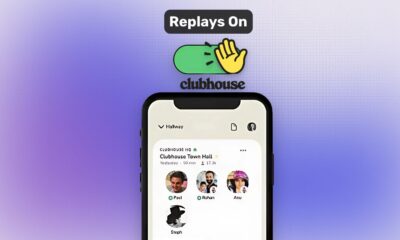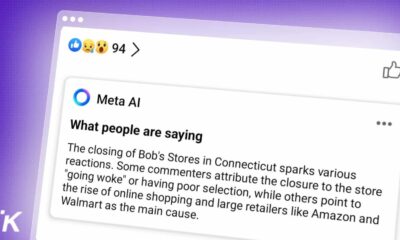How-To
A look at the best ways to prevent cyber attacks from happening to you
Follow these steps to help thwart hackers from accessing your personal information.

Just a heads up, if you buy something through our links, we may get a small share of the sale. It’s one of the ways we keep the lights on here. Click here for more.
Cybersecurity is a subject that should never be taken lightly. Whether you manage a website, have online accounts, or work using web-based programs, you are at risk of cyber attacks. Although the media typically only reports on breaching against high-profile companies, banks, and organizations, the reality is that small businesses and personal accounts also make prime targets for cybercriminals and disgruntled parties.
Due to their lack of resources, however, personal accounts, along with small businesses, have the least-protected accounts, networks, and websites. This makes it much more likely for them to be targeted.
So, what can be done to prevent this from happening? The answer: Implement a combination of security measures using both knowledge and technology to protect yourself. Remember, strengthening your online security doesn’t mean coming up with ways to lower your risk to zero.
It does, however, mean closing the tech skills gaps that exist across all industries by staying on top of evolving technology to prevent your information from getting into the wrong hands. To help protect your personal information, here are four cybersecurity solutions to get you started:
Choose a unique code to access your information
If you’re one of those users who rely on the same password for every account you own, whether it’s an email or online login, it’s time to change it. That’s because the endorsements of stronger passwords allow you to explore the web without fear of ending up somewhere that causes your information to be exposed to others.
Cyber attacks are most dangerous when fraudsters are able to gain sensitive information quickly. If you’re logged into different accounts using the same passwords, cybercriminals might find that the same password also works for your bank accounts and shopping sites, which can turn a small problem into a big one.
You can start by compiling all your sensitive online accounts into a list first. For example, you can make a list of healthcare accounts, that includes insurance information, and medical offices first. Then you can create another list that has all your financial accounts like banks, credit cards, and investments. As you go through each group, you can create passwords for each account to minimize the chances of fraud. It doesn’t stop there, however. After you’ve created passwords for each account, you then have to monitor it.
Malware and virus detection
If you’re someone who manages your own blog or website, do you know how to check for malware? According to SiteLock, “There are two primary ways to do this; the first is by learning to check for signs of malware manually. The second, and most effective, way to protect against malware is by using a website scanner that detects malicious content and automatically removes it.” If you’re not sure whether there is currently malware on your computer you can use a tool, like a URL scanner, to identify if your site has been flagged.
Once you’ve scanned and removed any malicious content, the next thing you’ll want to do is check for viruses on your computer. Before you do that, however, make sure you delete all your temporary files. This will help the antivirus program scan your computer faster, free up disk space, and get rid of any potential malware already stored on the computer.
Once the scan is complete, the antivirus program will show you all the results. If the software doesn’t show anything but you think there may be malware still present on your computer system, consider running a custom scan. If the program does find malware in these specific locations, it’ll display them to you and ask you if you want to remove them. After the malware has been removed, you may be prompted to restart your device to complete the removal process, which you will want to do.
Web browsing
If you wake up feeling sick, what’s the first thing you do? You grab your phone and look up symptoms. If this is something you’ve done, don’t worry — you’re not alone. There’s one major problem, however – aside from possibly getting the wrong information, you’ve also left a footprint on the internet. What does that mean? That means if you’re on an unprotected network searching private or confidential information, you could indirectly put yourself at risk of a cyber attack.
Since most of us believe that our online medical information is safe, we typically don’t think of the risk associated with cyberattacks. Therefore, it’s important to do all you can to keep sensitive information safe. That way, other people won’t be able to see your information online without your knowledge. So it’s worth taking browser security and privacy seriously.
Click smart
Now that you’ve put certain measures in place to protect yourself on the web, it is time to make sure you don’t purposely invite danger by careless clicking. Eight years ago, ads tried accessing your information by popping up and enticing users to visit potentially dangerous sites. Thanks to network security solutions like firewalls, however, this type of hacking has been reduced.
Nevertheless, many of today’s cyber attacks are based on social networking and phishing. That means, instead of using pop-up ads, cybercriminals are now trying to trick users into giving up their personal information for fraudulent purposes. Spam emails, “free” gifts, clickbait, and online games all use tactics that invite you to click on dangerous links or sites and reveal your personal information.
With that said, always be skeptical when you see ads that promise free things or online quizzes. A good rule of thumb: If it sounds too good to be true, then it probably is.





























